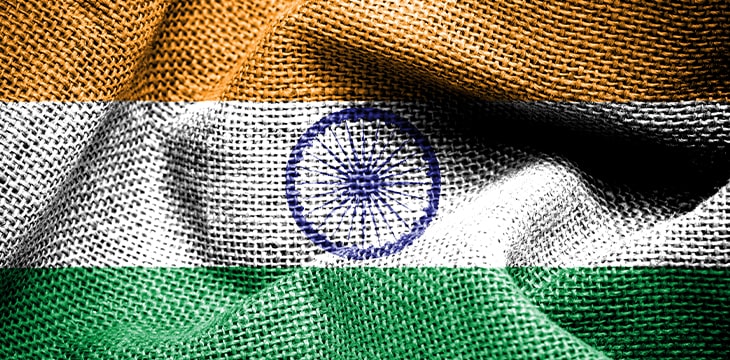|
Getting your Trinity Audio player ready...
|
“Bitcoin has many advantages to offer; chief among them is freedom—from middlemen or even corrupt governments.”
Dr. Craig S. Wright said those words while visiting Bogota, Colombia, in 2019. “Latin America is ripe for growth,” he said, pointing out that developing regions like India and Latin America have “a better opportunity to catch up and have faster growth than North America” by using Bitcoin, which will enable them “to have information.”
If we look at India, we see a technologically advanced nation that also struggles with poverty and a massive divide between the rich and the poor. Among the country’s poor are farmers working in the agriculture industry, which contributes a GDP of approximately 18% and employs over 50% of the Indian workforce.
The life of an Indian farmer is rife with stress and dashed hopes, as seen in the harrowing statistic reported by Economic Times, which noted that the suicide rate in the farming sector accounted for 7.4% of the total suicides in the country, resulting in the deaths of 5,957 farmers and 4,324 agricultural laborers in 2019 alone. According to the National Crime Records Bureau (NCRB) data on accidental deaths and suicides, 10,281 farmers committed suicide in 2019. The cause of the stress? It is partly the middlemen—aka agents and document writers—who consume their profits.
Andhra Pradesh is a southern Indian state where approximately 70% of the population earn their livelihood from the land. The state implemented the e-Governance system, a digital platform for farmers, in 2014. Speaking about the implementation findings during a TEDTalk, J.A. Chowdary, the special chief secretary and IT advisor to the chief minister of Andhra Pradesh, shared that he was born in a farmer’s family.
The findings from the e-Governance system show numerous benefits and reduced corruption because there is no involvement of middlemen in this business model. The state earlier observed that most land registrants initially attended the computer-aided registration department with a middleman, and that the average bribe paid was an additional 7.95% of the actual fees due. However, six months after the implementation, 80% of all land registration transactions were electronically processed without middlemen. The registration process now takes one hour instead of 15-20 days as it did in the conventional system. The title searches of the past 20 years take 15 minutes rather than three days, while obtaining certified copies of documents takes 30 minutes instead of the three days in the conventional system.
How blockchain can help
Chowdary is optimistic and enthusiastic about the future, and is determined to make the Vizag city of Andhra Pradesh the world’s blockchain capital. He has developed a 5M strategy to make that happen, i.e., the state will provide Manpower, Money, Market access, Mentoring, and Metapayments to the fintech players. “These five Ms will shatter entry barriers for fintech start-ups. We are in the process of setting up a blockchain university,” he said. The state has also established the International Institute of Digital Technologies (IIDT)—India’s premier institute offering cybersecurity, AI, analytics, and blockchain courses.
In 2020, one of the largest Indian farming companies, Sahyadri Farmers Producers Company, had integrated blockchain technology and digitized its supply chain. In addition to consumers, the farmers also benefitted as the upgrade enabled them to track their produce along the supply chain, for instance where the produce was sold and at what price.
Also, blockchain helps other sectors like the Universal Source of Truth (UNISOT) and its SeafoodChain, a supply chain company based in Norway. It is a solution that tracks seafood from the source to the consumer. Seafood has a very complex supply chain, and the product travels long distances before it reaches the plate. SeafoodChain bridges the gap, allowing the participants to enter data at each stage of the supply chain that can be verified on the immutable Bitcoin SV (BSV) blockchain ledger.
However, implementation of the blockchain technology in the global supply chain sector presents many hurdles. As UNISOT co-founder and CEO Stephan Nilsson pointed out at the CoinGeek Zurich that people fear that all information on a public blockchain is publicly available. “We have a public internet that everyone can access, but we all use that same internet to connect to our respective banks/hospitals/etc. through secure, top-layer systems. Similarly, the business layer of a public blockchain is permissioned and all information on that layer is securely encrypted,” Nilsson said.
An Australian agriculture-technology company, Farmo, has teamed up with MetaStreme to use BSV blockchain for managing distribution of water for farms, store climate data, and is also planning to explore its application in sectors such as transportation. In fact, companies, including online gaming, geolocation data providers, and online dictionaries, are increasingly using BSV blockchain in their respective industries. It is no longer about if but when every sector turns the “crypto way.”
Despite the momentum, the Reserve Bank of India has shown resistance towards adopting blockchain technology. The central bank may fear that these companies are trying to disrupt the existing banking system, although they do not understand that blockchain is a better way to use a ledger for payments. BSV will only help develop the Central Bank Digital Currencies (CBDCs); it will never replace them.
Watch: CoinGeek Zurich panel, Supply Chain, Product Provenance & Blockchain

 02-14-2026
02-14-2026 




